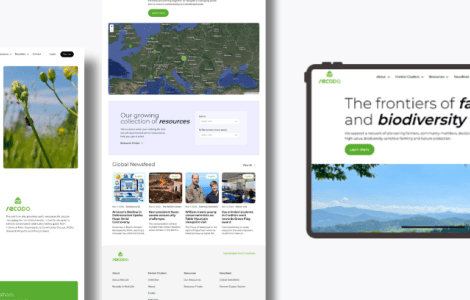Can science change the world? We launch the Impact Corner to promote knowledge to reach where it is needed
WITH THE COLLABORATION OF:
WITH THE COLLABORATION OF:
Research plays a key role in finding solutions to nowadays major social and environmental challenges. Society is demanding scientific knowledge to address pressing challenges, and science is responding by promoting research that is more open, more connected, and more engaged with its environment.
This trend is reflected in several areas: the promotion of open science, the diversification of research careers, funding aimed at addressing societal challenges, and the growing motivation of scientists to ensure that their discoveries have a real impact beyond academia. For all these reasons, the societal impact of research is more important than ever.
The academic and scientific community has long been reflecting on how to improve the assessment of researchers and scientific results, broadening the perspective to value both the advancement of knowledge and the benefits that research brings to society and the environment. Within this context, CREAF launches the Impact Corner, a series of publications sharing experiences, tools and reflections on the impact of research on society. These contents aim to be part of the change and to support CREAF and other centers in this journey.
“Broad and long-term effects on society (including the environment), the economy, and science, facilitated by the primary and secondary outputs of investment in research and innovation.“
European Commission’s definition of research impact (in R&D projects)
For decades, research assessment has focused primarily on academic impact, as measured by publications and citations. But scientific knowledge goes much further: it has driven social, political and environmental change, often unnoticed or unrecognised. These changes are possible because research is relevant to society, and because many researchers are committed to providing knowledge where it is needed. These impacts or benefits vary from discipline to discipline and in some cases, such as basic research, may be less obvious but no less important.

Volunteers planting trees in Plaça del Coneixement from UAB. Image: Galdric Mossoll
What is the societal impact of research, and why does it matter?
What is the societal impact of research, and why does it matter?
At CREAF, we understand societal impact as:
- any type of change (large or small, local or global, intentional or not, instrumental or conceptual)
- that we can capture (see, demonstrate, measure)
- beyond academia (positively affecting society, the economy, and the environment)
- which occurs thanks to research contributions.
Ultimately, it's as 'simple' as understanding that impact is the result of collaboration and joint work between social actors and researchers. It's about valuing these collaborations and incorporating into the research questions a reflection on where the research could lead, whether it should involve social actors, and how its results could be used. It is about continuing the efforts to generate new knowledge, while ensuring that this knowledge has a tangible impact beyond academia.
Science that advances knowledge can also be a driver of change and a key element in influencing decision-making, public policy, environmental management, innovation, and the improvement of collective well-being.
Concreting in what is related to the research carried out at CREAF, we are currently facing multiple socio-environmental challenges with major negative effects, both locally and globally, affecting the composition, structure and functioning of ecosystems to the point of threatening the essential contribution of nature to human needs and well-being. In this sense, our science can provide knowledge and solutions that can foster a more balanced relationship with nature and be translated into concrete actions to address these challenges.

A research culture in evolution
A research culture in evolution
In recent years, a major revision of the research system is taking place at the international level. This materialised with the San Francisco Declaration (DORA) in 2012 and, more recently, with the constitution of COARA at European level (2022), signed by more than 800 organisations from all over the world, including CREAF, UAB, UB, CSIC, CERCA, ANECA and ICREA.
This transition involves putting open science into practice, using quantitative metrics responsibly, and evaluating research for its outcomes and the benefits it brings to society. This approach recognises success not only in advancing knowledge and its application, but also in incorporating different perspectives, including the knowledge and needs of non-academic actors in the research process itself.
Thinking about the impact is an important part of changing how we evaluate the system and rewarding the careers of research staff in a more holistic way. Although there is still a lot to be done to achieve a more diverse and representative system, important efforts are being made to move in this direction.
Our invitation to you is a call for reflection and action
Our invitation to you is a call for reflection and action
One of the pillars of CREAF's institutional strategy is to promote the impact of its research, which is why it values and recognises the importance of all the different activities and collaborations that are necessary throughout the impact pathway, without them, it would not be possible to achieve the desired benefits. This is a part of the Centre's mission that has become more relevant than ever due to current international thinking and societal needs.
We invite you to join us on this journey, to share your experiences, to ask questions that will help us build a science that is more open to society, more inclusive and more committed.








